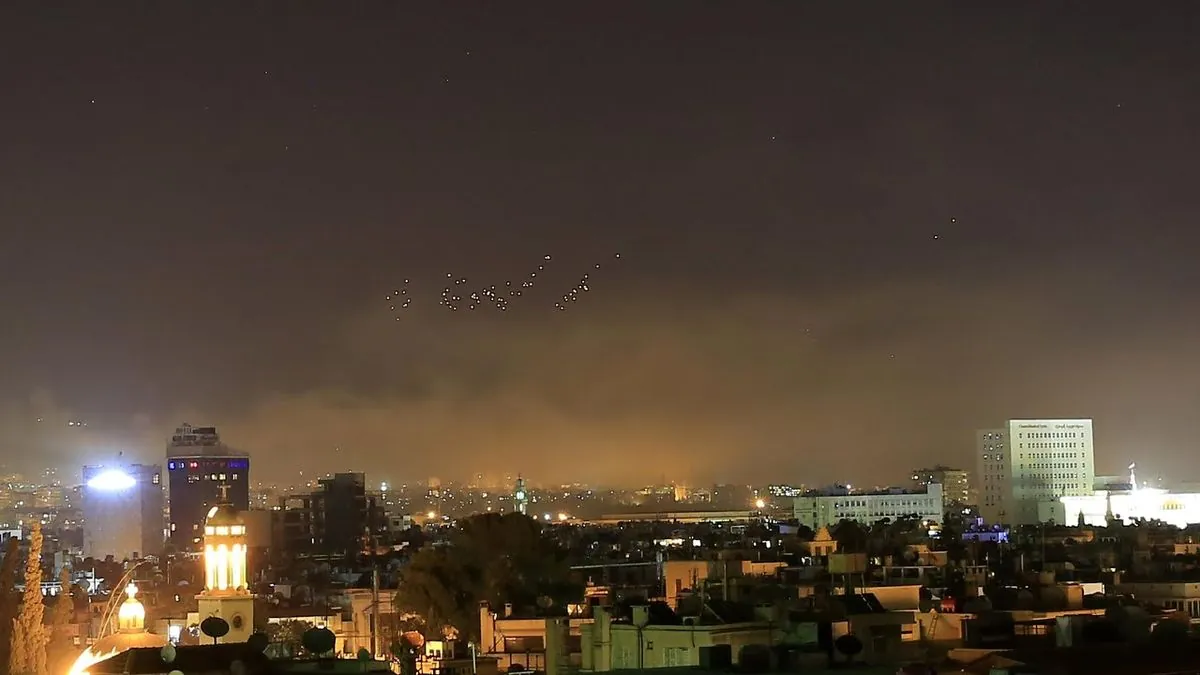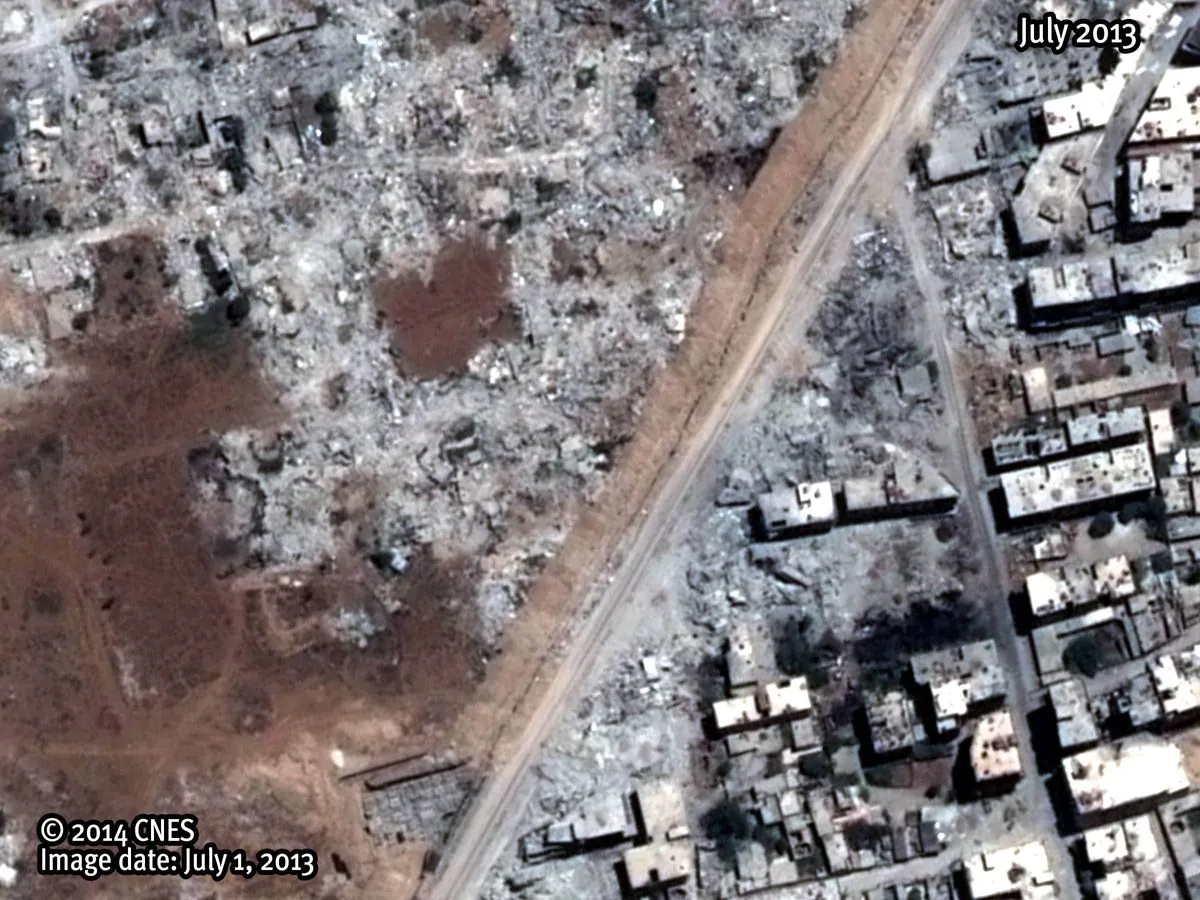Israeli Airstrike in Damascus Claims Civilian Lives, Escalates Regional Tensions
An Israeli airstrike on a residential area in Damascus resulted in civilian casualties. The incident highlights ongoing tensions and Israel's increased military activity in Syria since the 2023 Hamas attack.

In a recent development that underscores the ongoing tensions in the Middle East, an Israeli airstrike targeted a residential area in Damascus, resulting in civilian casualties. The incident, which occurred on October 4, 2024, has drawn attention to the complex geopolitical landscape of the region.
According to Syrian state media, the airstrike struck the Mezzah suburb in western Damascus, a district known for housing diplomatic missions and government buildings. The attack claimed the lives of three civilians and left three others wounded, highlighting the human cost of the ongoing conflict.
This latest incident is part of a pattern of Israeli military operations in Syria, which have been ongoing for years. These strikes typically target locations believed to have connections to Iran, a key ally of the Syrian government. The frequency of such operations has notably increased since the October 7, 2023 attack by Hamas on Israeli territory.

The conflict in Syria, which began in 2011, has drawn in multiple regional and global powers, transforming the country into a complex battleground. Damascus, one of the world's oldest continuously inhabited cities, has been at the center of this turmoil. The prolonged conflict has had devastating effects on Syria's population and infrastructure, with millions displaced and the economy severely impacted by both the war and international sanctions.
Israel's involvement in Syria is rooted in its longstanding concerns about Iranian influence in the region. The two countries have technically been in a state of war since 1948, with tensions further exacerbated by Israel's occupation of the Golan Heights since 1967. While Israel rarely confirms or denies its military operations in Syria, these actions are widely seen as attempts to prevent Iran from establishing a permanent military presence near its borders.
The Syrian government, supported by allies such as Russia and Iran, has regained control over much of the country in recent years. However, the conflict continues to simmer, with various factions and international actors involved. The United Nations has repeatedly called for a peaceful resolution to the Syrian conflict, but a comprehensive solution remains elusive.
"The Israeli airstrike targeted a residential building in the Mezzah suburb in western Damascus."
This latest airstrike raises questions about the potential for further escalation in the region. The international community continues to monitor the situation closely, with concerns about the impact on civilian populations and regional stability. As the conflict enters its fourteenth year, the need for a diplomatic solution becomes increasingly urgent.
The incident also highlights the ongoing challenges faced by Syria in protecting its airspace. Despite significant upgrades to its air defense system with Russian assistance, the country remains vulnerable to external military actions. This vulnerability extends to critical infrastructure, with Damascus International Airport having been a frequent target of Israeli airstrikes in the past.
As tensions persist, the international community remains divided on how to address the complex web of conflicts in the region. The use of chemical weapons in the Syrian conflict has led to international condemnation, further complicating diplomatic efforts. With the United States maintaining a military presence in parts of Syria since 2014 and other global powers involved, the path to peace remains fraught with challenges.
The recent airstrike serves as a stark reminder of the ongoing volatility in the region and the urgent need for a comprehensive approach to address the root causes of conflict. As Damascus and its residents continue to bear the brunt of these hostilities, the international community faces the daunting task of finding a way to bring stability to this historically rich and strategically significant part of the world.


































